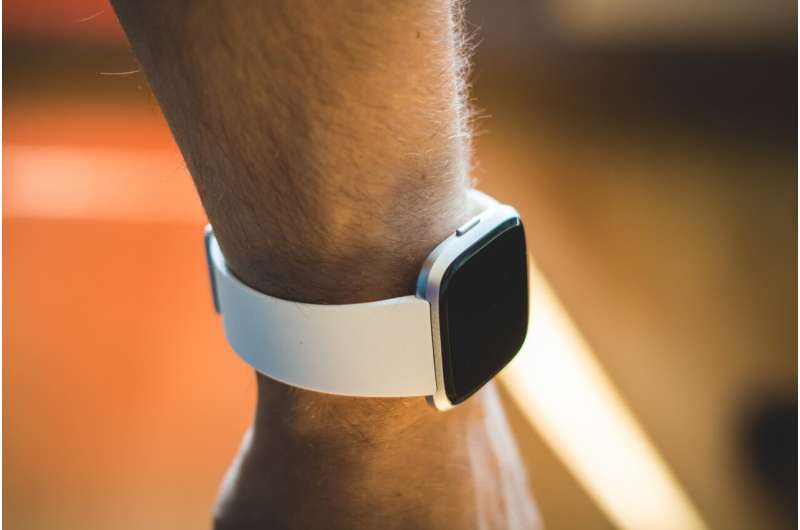Fitbit devices provide accurate measurements of wearers’ circadian rhythms, or rest-activity cycles, but underestimate sleep measures, according to researchers at The University of Texas at Austin and the University of Texas M.D. Anderson Cancer Center in Houston.
The findings demonstrate that the efficacy of the commonly worn devices is comparable to research devices that must be issued and recharged at a laboratory. The use of Fitbit and other commercial wearables could expand the scope of future health research to broader populations, including older adults.
“A widely available commercial product that many people own can be used to measure rest-activity cycles with precision accuracy,” said UT psychology professor and department chair David Schnyer, one of the study’s authors. “This was true in both younger and older adult groups. The latter is important because research has shown that changes in circadian rhythms associated with aging can be sensitive to both cognitive decline as well as dementia vulnerability.”
Fitbits and similar health-tracking devices have grown in popularity over the past decade, but there is sparse data about their accuracy, particularly with older adults. In a study published in Smart Health, the authors compared two popular Fitbit devices against the Actiwatch 2.0—a known, reliable method for measuring activity patterns outside of a laboratory over multiple days—at capturing daily rest-activity cycles and sleep time in both young (ages 18-30) and older adults (ages 60-89).
Participants wore an Actiwatch and one of the Fitbit options on opposite wrists for 10-14 days while going about their normal activities. They also kept daily sleep diaries. Fitbit accuracy was comparable to the Actiwatch for rest-activity cycles but tended to underestimate both total sleep time and time it took wearers to fall asleep. This discrepancy could be due to the devices’ oversensitivity to movement or the algorithms they use to detect sleep.
The results suggest that although sleep measures are still best captured using Actiwatch technology, Fitbits could be leveraged for future studies of rest-activity cycles. The growing ubiquity of Fitbits, along with the ease of charging these devices (the Actiwatch must be returned to the laboratory for charging after 30 days), make them potentially useful tools for assessing health in larger and more diverse populations.
“These findings support using Fitbits or other commercial activity bands as an important tool to monitor rest-activity cycles ‘in the wild,'” Schnyer said. “Changes in these cycles could be indicative of distress or changes in cognitive functioning in elderly adults.”
More information:
Megan McMahon et al, Fitbit validation for rest-activity rhythm assessment in young and older adults, Smart Health (2023). DOI: 10.1016/j.smhl.2023.100418
Citation:
Fitbits perform well in capturing circadian rhythms but not sleep time (2023, August 8)
retrieved 8 August 2023
from https://medicalxpress.com/news/2023-08-fitbits-capturing-circadian-rhythms.html
This document is subject to copyright. Apart from any fair dealing for the purpose of private study or research, no
part may be reproduced without the written permission. The content is provided for information purposes only.


